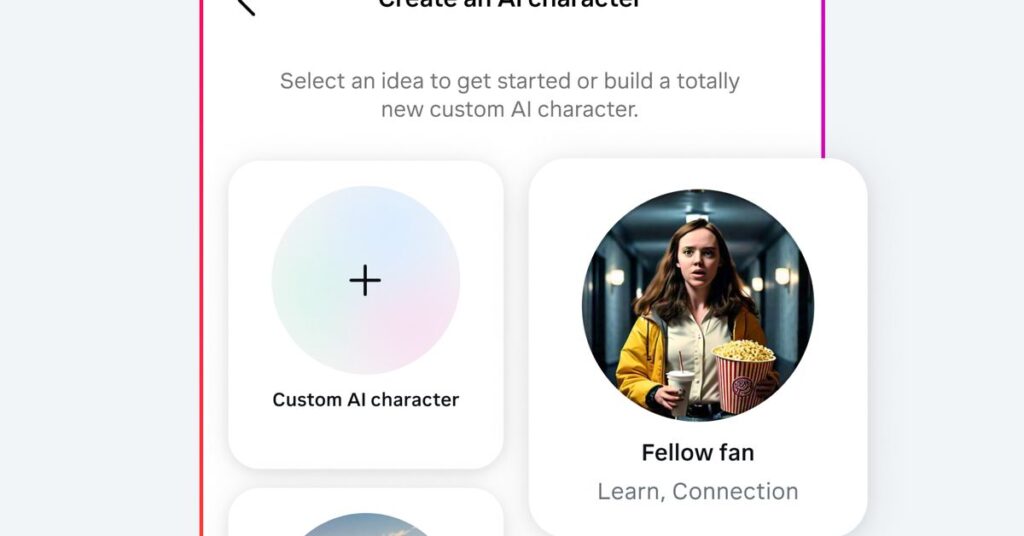Meta is opening up the ability to anyone in the U.S. to create a version of their own AI on Instagram or online, using a new tool called AI Studio.
The pitch is that creators and business owners will use these AI profiles to speak to their followers on their behalf. They will be able to talk directly to humans in chat threads and reply to comments on author accounts. Meta said that Instagram users in the United States can start using AI Studio through its website or by launching a new “AI Chat” directly in Instagram.
“Creators can customize the AI based on Instagram content, topics to avoid, and links they want to share,” the company wrote in a blog post on Monday. The post went on to say that creators will be able to toggle Features such as artificial intelligence auto-replies and specifying which specific accounts are allowed to interact with.
AI Studio also allows the creation of new AI characters that can be deployed in Meta’s applications. Here, Meta follows startups like Character.AI and Replika, where people are already talking to themed chatbots and even falling in love with them. Like OpenAI’s custom GPT store, Meta will also display AI characters made by people for others to try.
Meta’s first foray into the concept had some celebrities create their own versions of artificial intelligence, with the same likeness but different names and characters. At the time, Meta said it took the approach because it was concerned that AI versions of celebrities would say questionable things on behalf of their human counterparts. (Even with AI Studio’s built-in controls, this is bound to happen. After all, we’re dealing with generative AI.)
It seems Meta at least realizes this is dangerous territory. The company says AI profiles are clearly labeled wherever they appear. A company handbook for creators goes into more detail about the AI creative process, and it appears that creators have a responsibility to list topics that AI will not engage with. One of Meta’s example questions is one where artificial intelligence can be told not to answer: “Should I invest in cryptocurrency?”

